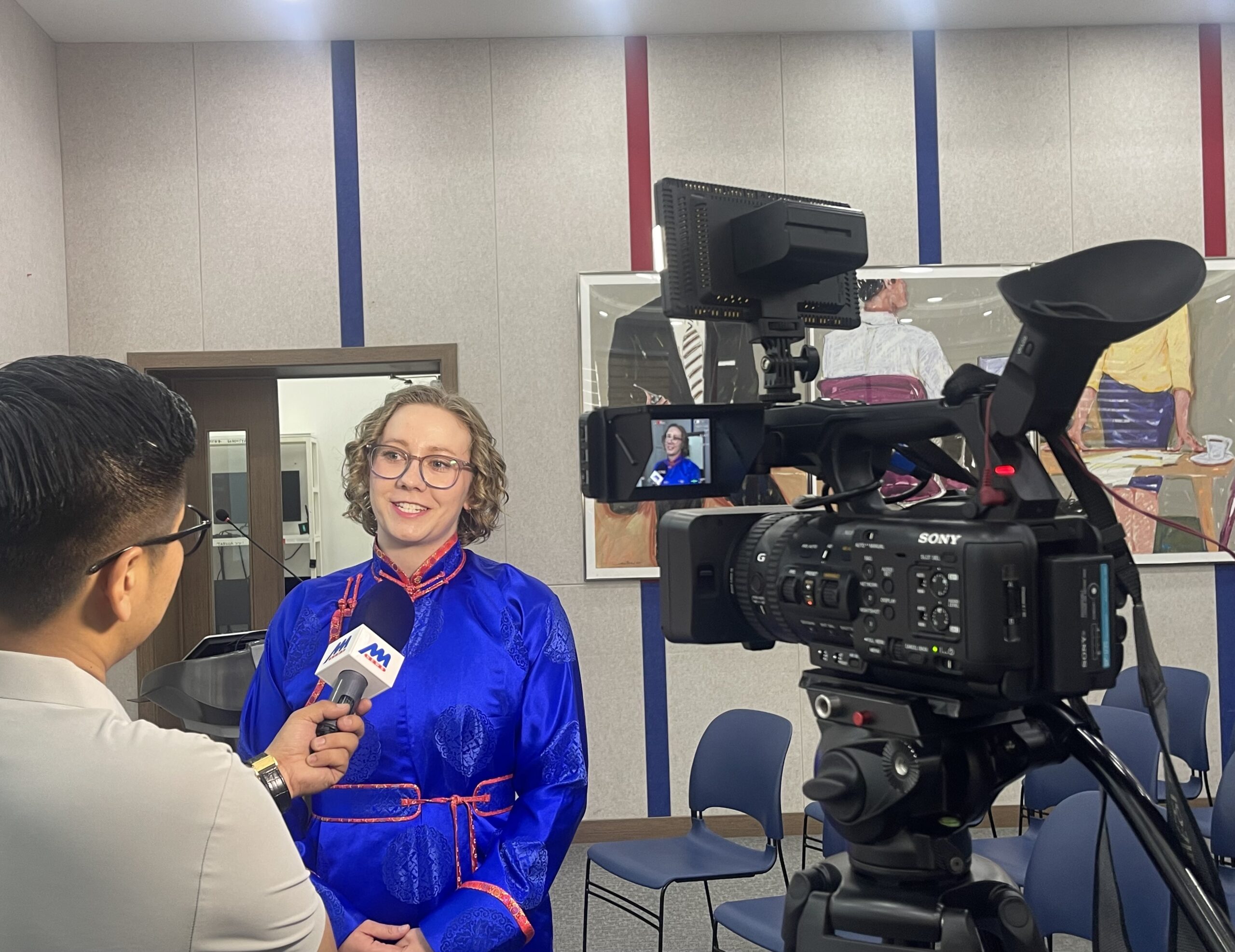

National media outlets MNB and MONTSAME covered the event, recognizing its significance not only for scholarly audiences and the general public in Mongolia, but also in promoting the mission and activities of the American Center for Mongolian Studies. Their coverage underscored the growing importance of international academic exchange and research in advancing the understanding of Mongolia’s rich history and cultural heritage.

Professor Atwood, currently the Department Chair of East Asian Languages and Civilizations and Professor of Mongolian and Chinese Frontier and Ethnic History at the University of Pennsylvania, shared insights from his acclaimed new English translation of The Secret History of the Mongols, published in 2013 by Penguin Classics. This essential 13th-century narrative chronicles the rise of Chinggis Khan from his legendary ancestry and early struggles to the unification of Mongolia and the expansion of the empire under his son, Ögedei.

In his lecture, Professor Atwood detailed the extraordinary journey of the text’s survival, focusing on two primary versions: the Hanlin recension, preserved through 14th-century Chinese transcription and used to train imperial interpreters, and the Altan Tobchi recension, which was compiled in the 17th century by the Buddhist monk Lubsang Danzin. He demonstrated how the Hanlin version’s meticulous word-by-word glosses have become essential for interpreting otherwise lost meanings in Middle Mongolian.
Drawing comparisons between notable English translations by Francis Cleaves, Igor de Rachewiltz, and Urgunge Onon, Atwood offered a transparent look at the linguistic, cultural, and interpretive choices and challenges translators face.
Importantly, the lecture positioned The Secret History as a lens for examining the future of Mongolian studies. Professor Atwood emphasized the field’s long-standing international character, emerging at the intersection of Russian, Chinese, German, and Japanese scholarship, and now deeply rooted in a global academic network. He argued that Mongolia’s own centrality in Eurasian history makes its study not only uniquely valuable but inherently international in scope.
“In studying Mongolia,” Professor Atwood noted, “We are also studying the movements and ideas that have shaped the heart of Eurasia for centuries. The Secret History speaks across borders and generations—not only of power and unity, but of ambiguity, identity, and voice.”
The lecture concluded with vibrant discussion, reaffirming growing interest in Mongolia’s historical contributions and the vitality of cross-border academic collaboration.
This event was held at the American Corner in Ulaanbaatar and forms part of the ACMS Special Edition Speaker Series, which celebrates the long-standing friendships between distinguished scholars and the field of Mongolian Studies through special events such as Professor Atwood’s lecture. We look forward to welcoming more guests and continuing to strengthen academic and cultural ties between Mongolian and Western scholars, students, and institutions.

